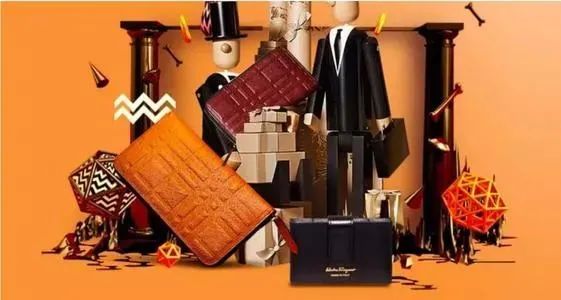Discovery at Carlson·19 Luxury Products Change Behavior, And Not In A Good Way

Luxury Products Change Behavior, And Not In A Good Way
That Prada handbag you just ordered online may change the way you behave in certain situations, according to new research from the Carlson School.
Professors Vladas Griskevicius, the Carlson Foundation Endowed Chair, and Deborah Roedder John, the Curtis L. Carlson Chair in Marketing, along with Professor Yajin Wang, a former Carlson School PhD student now at the University of Maryland, explored how owning luxury products can affect people’s both psychology and behavior in their forthcoming paper, “Does the devil wear Prada? Luxury product experiences can affect prosocial behavior,” forthcoming in the International Journal of Research in Marketing. The term prosocial refers to the intent to benefit others.

Vladas Griskevicius

Deborah Roedder John
The researchers found that, after using a luxury product, women exhibited more selfish behaviors, such as sharing fewer resources with others and contributing less money to charity than those who used a non-luxury handbag. The pattern was reversed, however, when luxury users were able to perform generous behavior in front of other people.
“Introducing luxury products into our lives has consequences,” says John, recently named a fellow by the Society of Consumer Psychology. “Our studies show that the experience of using a luxury product makes women perceive themselves as having higher social status, and these perceptions affect behavior toward other people.”
Luxury goods are in the hands of more consumers than ever, the researchers noted, with sales of those goods topping $1.2 trillion Euro globally over the past decade. With online marketplaces, less affluent people—particularly those in younger generations—are able to buy and use these items more easily than before. Past research has demonstrated consumers are motivated to acquire luxury goods for several reasons, including boosting one’s self-esteem, happiness, feelings of power, communicating one’s sense of self, and satisfying one’s indulgent and aesthetic needs.
To study how people’s behavior changes, Griskevicius, John, and Wang gave a group of women a luxury brand scarf or bag, such as Prada or Louis Vuitton, and asked them to walk around with it. When they returned, the women were asked a series of questions such as whether they could “comfort someone after they experience hardship” or “help a stranger find something they lost.” The results showed less willingness to help others and less concern for others, even when money is not an issue.
In a second study, participants were asked to imagine themselves donating moneyto a charity, both privately and publicly.
“In this case, the results were reversed,” says Griskevicius. “Luxury users exhibited more generous behavior, but only when being more generous presents an opportunity to enhance one's reputation in front of other people. All in all, regardless of whether luxury users are more selfish or more generous, their behavior is ultimately driven by self-interest rather than concern for others.”
Taken together, this research contributes important elements to understanding social class, social status, and prosocial behavior from certain segments of the population.
“By examining different contexts for this behavior, we are able to provide a more nuanced look at the relationship between social status and prosocial behavior,” says John. “We were able to show that higher social status can be associated with more and less prosocial behavior depending on the circumstances, and show that the common thread to both effects is self-enhancement.”

刚刚在网上订购了一只普拉达包包?根据卡尔森学院的最新研究,这只包会影响你的行为模式。
Vladas Griskevicius教授(Carlson Foundation Endowed Chair)、Deborah Roedder John教授(Curtis L. Carlson Chair in Marketing)和Yajin Wang教授(卡尔森学院博士、目前就职于马里兰大学)研究了奢侈品对人们的心理和行为的影响,相关研究论文即将在International Journal of Research in Marketing发表。“魔头会穿戴普拉达吗?奢侈品会影响人们的利他行为。”
研究者们发现,使用奢侈品后,女性表现得更自私。与其他女性相比,使用奢侈品的女性更少进行资源共享或慈善捐款。但是,在能够当众展示自己的慷慨时,该行为模式则出现翻转。
John教授近期被消费者心理学会授予了Fellow称号。他表示,“奢侈品会影响我们的生活。研究发现,奢侈品让女性自认享有较高社会地位,并因此改变她们与人相处时的行为模式。”
奢侈品的消费者人数是空前的,过去10年,全球奢侈品总销售额高达12万亿欧元。得益于电商的普及,富裕程度较低的人群能够更方便地购买和使用奢侈品了,尤其是年轻一代。过去的研究已经揭示了消费者购买奢侈品的多个原因,包括提高自尊、幸福感、权力感、彰显自我意识、满足享乐和审美需求。
为了探明人们行为模式的变化,Griskevicius、John、Wang教授展开了研究。他们向一组女性受访者分发普拉达、LV等奢侈品牌的丝巾和手包,请她们穿戴这些奢侈品外出,并在她们返回后提出一系列问题,例如:她们是否愿意安慰正在经受苦难的人、是否愿意帮助陌生人寻找失物。调查发现,她们帮助他人、关怀他人的意愿降低了,虽然这些行为并不需要经济投入。
在第二项研究中,受试者被要求考虑私下和公开的慈善捐款。
“第二项研究呈现了完全相反的结果。奢侈品使用者显得更慷慨,但是仅限于有利于其公众形象的情况下。整体来说,无论自私还是慷慨,奢侈品使用者的行为的驱动力是自利而非利他。”Griskevicius教授表示。
这项研究所揭示的信息,有助于大家理解这个人群的社会阶层、社会地位、和利他行为模式。
“通过研究利他行为的不同背景,我们能够洞见社会地位和利他行为之间的微妙关联。我们能够发现,基于场景的不同,社会地位可能造成利他行为的增加或减少,并且这两种行为模式的共通之处是提升自我。”John教授如是说。



